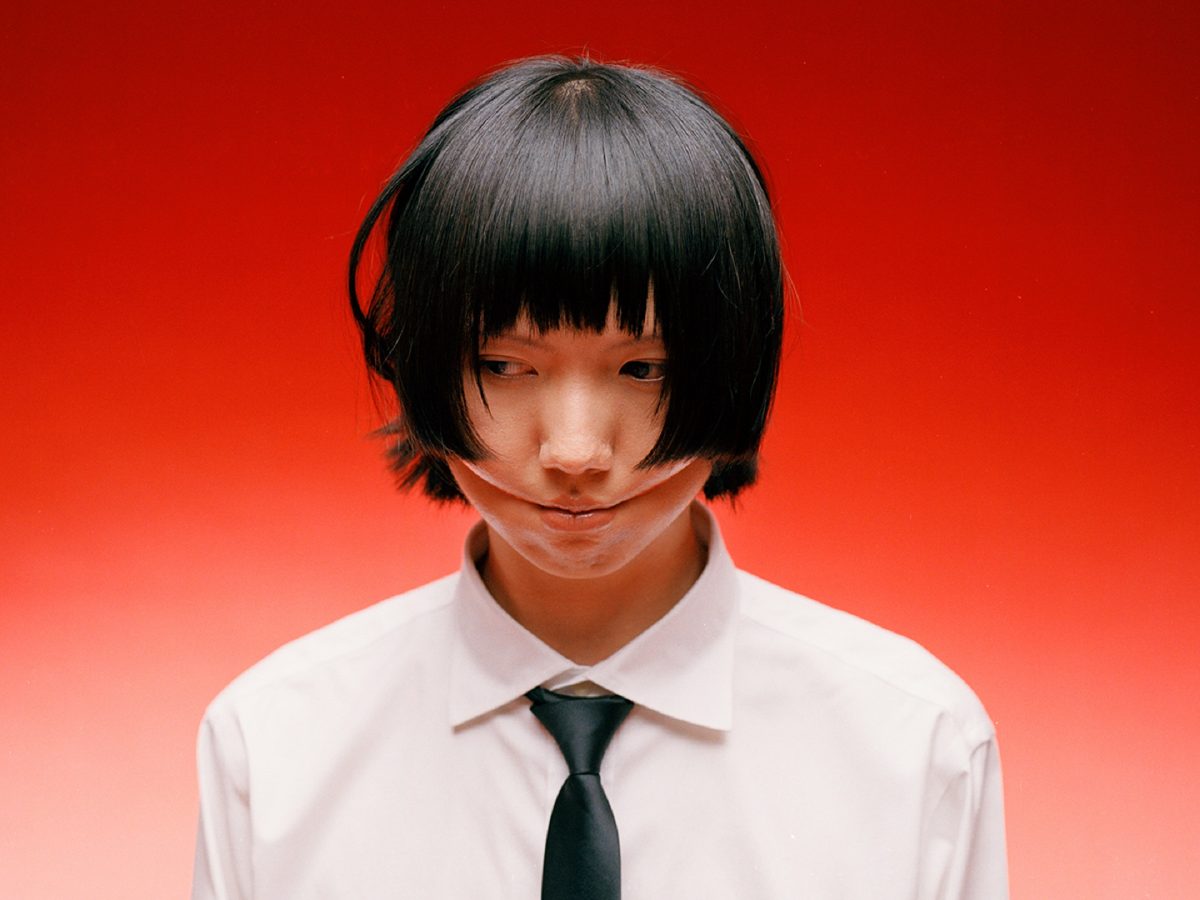CHINESE VERSION
Yu Chao是一位居住在倫敦的音樂藝術家,創作內容涵蓋音樂和視覺藝術領域。他善於用音樂作為媒介,並延伸其創意領域,製作動畫、攝影和電影短片等藝術作品。
目前,Yu Chao已完成了在倫敦和柏林的演出,並正籌備他預計於2024年發行的新專輯。這張專輯的首支單曲《Violence》已於十月初發布。該歌曲探討了暴力作為一種似乎天生存在於我們每個人內心的本能。儘管我們對其感到譴責並且恐懼,但在性別轉換以及不同物種之間的轉變中,我們熟知的道德界線似乎也在悄悄改變。人們一方面恐懼著會讓我們受傷害的事物,卻在心裡深處被動且不知情的狀況下迷戀著它。
為什麼想要探討暴力呢? 是什麼事件觸發了你對暴力的思考呢?
從很小時候,我常常反覆思考人際關係的動態,從個體互動到我們在更大社會中的角色。我想探討有關暴力的主題,這可能看起來像是對某種社會現象的斥責,但我真正的目標是鼓勵人們思考。在現代社會中,人們獲取的答案或事實似乎都很單一或簡要。如果隨機詢問街上的人對於「暴力」有什麼看法,大多數人會認為它是一種不好的事情。然而,如果我們可以私下審視某人的生活方式,我們可能會發現,雖然他們譴責暴力,但實際上他們可能在某種程度上對它是崇尚的,或只是他們只是很克制自己的想法,這並不意味著他們在撒謊;人們往往對自己在說什麼以及潛意識中為什麼思考某件事不太清楚。如果一個人表面上似乎很關心某個社會議題,但實際上對這個問題沒有深入了解,只是跟著大環境當下主流思想去發聲的話 ,那麼很容易導致盲人引領瞎子,最終為何這些事情對自己生活其實很重要的原因還是沒法搞清楚的。
我們生活中處處都有與暴力相關的事件發生,從家庭、朋友和戀人,再到我們生活中的每個角落。再談更深的話,人們實際上大多是暴力這個主題下的消費者,我們從新聞媒體或電影中,將某事物變得娛樂化、浪漫化,或著是把某個極惡放大到極致。我希望我的音樂成為一面鏡子,讓人們在思考這些事情時,多去反思自己周圍的人事物還有自己。
能描述一下你的創作過程嗎?
在音樂創作上,我喜歡每完成一個EP或專輯就去涉及其他音樂類型去創作。最開始,我大多以解構俱樂部方式去編排自己的音樂進行的方式,而現在正在準備的專輯會更多結合一些我平常聽的搖滾樂,還有我一直都很愛的古典音樂。
另外,我很愛看電影,如果我不從事音樂,很可能我會成為電影導演或攝影師。我音樂有些聲音的靈感是從看電影當中無意間得到的,完成音樂當下幾週後,我就會去著手進行其他專輯靜態照片還有MV的拍攝。通常,在我寫歌詞的當下,我就會想好自己要拍攝的畫面背景可能要什麼顏色,或是要用什麼攝像設備,畫面構圖應該如何等等… 對我來說,如果最終的創作成品無法達到腦海中的構想,我會覺得不如不要去做。我討厭做事情做得半調子,然後說服自己凡事都能容錯的態度。
你介紹自己受電影配樂影響,在你的認知裡,電影配樂帶來的是什麼樣的感覺? 它能勾起感情嗎? 還是說它充當的是一層質感?
我看的很多電影其實都沒什麼配樂,有些甚至只包含了簡單的音效和後製的環境聲音,但它依然是有感情的,只是我會比較認定勾起感情的原因主要發生於畫面本身還有故事劇情,畢竟絕大多數電影配樂都是為了服務畫面的需要。 雖然我喜歡音樂多過於電影一些,但這並沒有妨礙我在音樂創作中去探索其他我認為重要的領域。對此,我自己其實覺得很欣慰。 我的製作流程可能與電影相反,因為我是在音樂創作之後拍攝畫面,以擴展音樂內容,但這仍然使我感到高興,因為我可以在音樂實踐中追求其他我熱愛且對我很重要的東西。
請列舉在視/聽方面對你啟發最大的藝術家?
我非常喜歡奧地利導演Michael Haneke,我還記得第一次看他的電影《Benny’s Video》時的感覺。他讓我頭一次感覺到一個電影人跟我有強烈的共鳴,他把我心裡想的事情講得更深也更完整。另外,我也很喜歡加拿大導演David Cronenberg。 也許大家更熟悉他被譽為”身體恐怖大師”的一面,他創作了許多令人不適的畫面。但在他的其他作品中,尤其是一些不太為人所知的作品裡,你可以看到很深刻地他對人性持悲觀態度,他在好幾十年前就展現了在科技的掌控之下,人類是如此容易被煽動、操縱,且他用非常先鋒的形式去敘說他的故事。
ENGLISH VERSION
Yu Chao is a visual artist and musician based in London. Music is his media from which he extends his creativity even further to the realm of animation, photography and shorts.
Yu Chao has finished performing in London and Berlin and is preparing for his upcoming new album, expected to be released in 2024. The first single off the album, ‘Violence’, is released at the beginning of October. The song discusses violence as a basic instinct within all of us—although we denounce it and fear it, somehow the moral boundaries we are so familiar with appear to be quietly morphing amidst the shifting in gender and between different species. On the one hand, we fear the thing that causes harm, but deep down we are fascinated with it, passively and inadvertently.
Why do you want to talk about violence? What prompted you to think and talk about it?
I have been thinking about the dynamics within human relationships—whether it’s about interpersonal relationships or about our role in a bigger society—since I was really young. My discussion of violence might seem like a condemnation of a certain societal phenomenon, but what I’m really trying to do here is to encourage people to think. In modern society, the answers or facts people acquire seem rather one-dimensional or brief. If you were to randomly ask people on the street about their views on violence, most would likely consider it a bad thing. However, if we could privately examine someone’s lifestyle, we might discover that while they condemn violence, they may, in some way, actually endorse it, or
they may simply be restraining their thoughts. This doesn’t necessarily mean they are lying; people often aren’t very clear about what they are saying and why they are subconsciously thinking about something. If someone appears to be deeply concerned about a certain social issue on the surface but, in reality, lacks a deep understanding of the issue and is merely echoing the prevailing thoughts of the moment, it would easily be the blind leading the blind. Ultimately, they may still struggle to understand why these things are important to their lives.
Violence exists everywhere in our lives, from within families, among friends and romantic partners, to every corner of our daily existence. Going deeper, most people are actually consumers of violence. We often transform something into entertainment, romanticize it, or exaggerate evil to the extreme, through news outlets or movies. I try to be more like a mirror in my music, and I hope people could reflect more on what’s going on around them as well as on themselves.
Could you describe your creative process?
In terms of creating music, I like to explore different genres after completing each EP or album. At the beginning I like to arrange my music in the style of Deconstructed Club music. But the upcoming album will incorporate more elements from rock music, which I regularly listen to, as well as classical music, which I’ve always loved.
What’s more, I love watching films. If I’m not making music, I might become a film director or photograher. Some of the sounds in my music are inspired, spontaneously, by the films I’ve watched. I would start the photoshoot and shooting the music videos for my album a few weeks after finishing my music. I usually have a clear idea of the visuals I want already while I am writing my lyrics, including the background colours, the choice of equipment, and the compositions, among others. For me, if the final creative product doesn’t match the vision I have in my mind, I’d rather not do it. I would not do things half-heartedly and tell myself that
all are acceptable after the fact.
You said you were influenced by music in films. In what way does music in films work for you? Does it induce emotions? Or does it function as a layer of texture?
A lot of the films I’ve watched aren’t really accompanied by much music; some of them might even contain simple sound effects and post-production ambient sounds only. Still, these sounds convey emotions to me. It’s just that I tend to attribute the emotional impact more to
the visuals and the stories, since the vast majority of film scores are primarily to serve the visuals. Although I like music better than films, I’m still exploring the areas I consider important while creating music. In fact I’m quite happy about this. My creative process might be the opposite of filmmaking because I shoot the visuals after making the music, so as to
expand upon the music. Nonetheless, this brings me joy because it allows me to pursue other things that I’m passionate about and that are important to me in the musical practice.
Please list some of the artists who inspire you the most in the audio/visual realm.
I’m a huge fan of the Austrian filmmaker Michael Haneke. I still remember how I felt watching his film, Benny’s Video, for the first time. It was the first time I felt such a strong connection with a filmmaker; he expressed what’s going on in my mind but with more depth and more thoroughly. I also love David Cronenberg, the Canadian director. Perhaps most people know him as the ‘master of body horror’, as he has created many unsettling scenes. But in his other works, especially the lesser-known ones, you could see his profound pessimism about human nature. He already showed, decades ago, that human beings are easily swayed and manipulated under the control of technology. And he told his stories in such avant-garde
forms.
Yu Chao’s single ‘Violence’ is out on 7th October , listen.
If you like what you see, please consider contributing to our patreon so that we can continue to create content free of advertisement and commericals.
